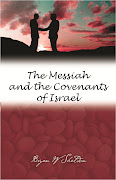Ezra’s Hanukkah
After the
reigns of David and Solomon the fortunes of the Jews were always intimately
connected with Jerusalem and the
Temple. If they habitually broke the Law of God they lost the city and the
Temple, as when the Babylonians came. But when they returned to God, they were
restored to the city, as at the time of Nehemiah and Ezra. And when they returned to the city the
whole community worked together to rebuild the Temple. On its completion they
celebrated with a Hanukkah service, for in Ezra 6:16,17 the term translated “dedication”
is again ‘hanukkah’. The festivities and service were nothing to be compared to
that of Solomon, nevertheless it was a joyful time - they had seen God’s hand
of protection and provision, so now they celebrated. Celebrations have always
been vital for the people of God. They are occasions of fellowship, of worship,
of glorifying God. The sin offerings comprised of “twelve male goats, according to the number of the tribes of Israel” while the fellowship offerings were “one hundred bulls, two hundred rams, four hundred lambs” (Ezra
6:17). It was permitted, nay required, that the meat of the fellowship
offerings should be shared with priests, offerers and their families, so it can be assumed that the
service of dedication ended with a
great feast in which everyone participated and which was used to
bind the community
together. And, as was customary at such festivals, the purpose and history of
the nation
was explained.
Because of the loss
of sovereignty when they returned to Israel after the seventy year period of
exile, they could not return to the political structure that operated at the
time of David and Solomon. And since the main impulse for the return to the
land and the reconstruction was religious then that became the dominant force
in Israel. The High Priest became the supreme head of state as well as the
supreme director of worship. The authority of the king was replaced by the
authority of the High Priest and since his seat of jurisdiction was the Temple
then that became the centre of the
nation’s government as well as its centre of worship.
Ezra was the one who
contributed most to the authority of the priesthood and the religious development
of the nation after their return from Babylon. He had reasoned that the
Babylonian captivity was a judgment of God, the cause of which was broken
law. Moses had warned:
“So
watch yourselves, that you do not forget the covenant of the Lord your God which He made with you,
and make for yourselves a graven image
in the form of anything against which the Lord
your God has commanded you. For the Lord
your God is a consuming fire, a jealous God. When you become the father of
children and children’s children and have remained long in the land, and act
corruptly, and make an idol in the form of anything, and do that which is evil
in the sight of the Lord
your God so as to provoke Him to anger, I call heaven and earth to witness
against you today, that you will surely perish quickly from the land where you
are going over the Jordan to possess it. You shall not live long on it, but
will be utterly destroyed. The Lord
will scatter you among the peoples, and you will be left few in number among
the nations where the Lord
drives you” (Deut. 4:23-27).
To avert
any future judgments and deportations it would be
However, to the foregoing laudable aim they added the seed of something that was to undermine the written Hebrew Scriptures themselves, for to Ezra and the men of the Great Synagogue was ascribed the ancient saying, "Make a hedge for the Torah" (Abot 1.1.I.C(3) (Mishnah)). There are 613 explicit laws in the five books of Moses. These were to be examined and re-enforced. The purpose was to set the bar higher, to make the law stricter, thus offering some protection from even breaking the Mosaic Law inadvertently. It was the second generation Sopherim who sought to fulfil that ambition. The principle on which they worked was, a Sopher (Scribe) could disagree with a Sopher but not with the Torah. When they reached a majority agreement these additional laws became binding on all Jews.
The work of the Sopherim was continued and supplemented by the work of the Tanaim (Repeaters). These extra regulations are referred to in the gospel records under the term "tradition", that is, "the tradition of the elders" (Matt. 15:2; Mark 7:3,5) or the "tradition of men" (Mark 7:8). Thos that supported and sought to enforce these supplementary regulations played a big part in the events at the time of the Maccabees and the time of Christ. However, Jesus never accepted that these extrapolated rules had divine approval and rejected them. Nevertheless, they exerted substantial influence on sections of the Jewish population, particularly the 'pious'.




